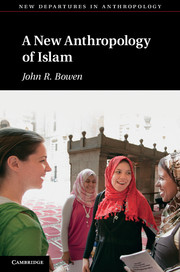Book contents
2 - Learning
Published online by Cambridge University Press: 05 December 2012
Summary
The first revelation came in the form of a presence that overwhelmed a middle-aged man, Muhammad ibn Abdullah, as he sat meditating in a cave near Mecca in 610 ce. The presence was conveyed through sight, sense, and sound; it filled the sky, pressed down upon the man, and ordered him to “Recite!” Refusing, hesitating, he eventually obeyed, reciting what he had heard from God through Gabriel to those who would listen.
I begin with this moment because Muslims do so, by learning to recite and by privileging this point of contact with the divine. From revelation begins learning, and from revelation learning diverges along multiple channels of interpretive discovery. The science of that learning requires following a particular sort of historical discipline, one that charts the chains of transmission that mark those channels.
These chains began with recitation. The most important element of Islamic knowledge, the Qur’an, resulted from men and women collecting the many recitations (qirâ'a - notice he relatedness of the two words, from the Arabic root q-r-’) given to Muhammad. Muslims today begin to learn their religion – as children, converts, or in a return to the faith – by learning how to speak the Qur’an. For the great majority of Muslims, this process begins with mastering the arts of pronouncing, recognizing, and writing the letters of the Arabic alphabet. Although most Muslims do not have a speaking or reading command of Arabic, most come to acquire a working knowledge of its sounds and shapes and of the meanings of many words; most will learn some of the chapters or suras (sing.: sûra) that make up the Qur’an. Even native speakers of an Arabic dialect, if they wish to recite verses correctly, must learn the classical form of the language and the acceptable ways of pronouncing Qur’anic forms of Arabic.
- Type
- Chapter
- Information
- A New Anthropology of Islam , pp. 11 - 41Publisher: Cambridge University PressPrint publication year: 2012



